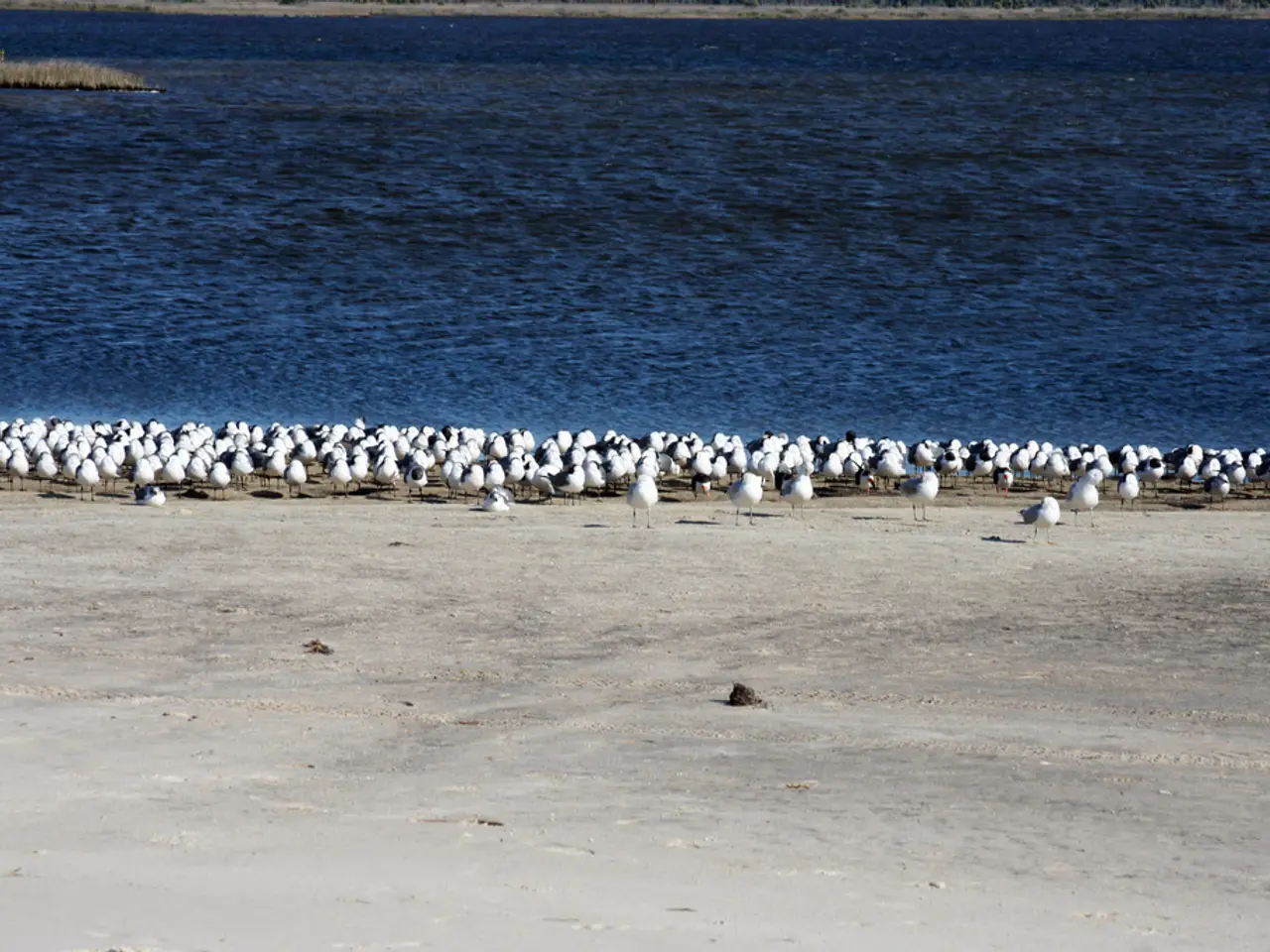Conflict over cleanliness persists, coinciding with an unauthorized beach season in Anapa
In the picturesque coastal town of Anapa, Russia, a significant environmental crisis persists, stemming from a major oil spill that occurred in December 2024. The spill, involving two sunken Russian tankers, released approximately 4,000 tons of fuel oil into the Black Sea, causing extensive damage to the local ecosystem and tourism industry [1][2].
As of mid-2025, cleanup efforts are ongoing, with approximately 475 km of shoreline around Anapa having been cleaned, and 158,000 tonnes of polluted sand collected [2]. However, the seeping oil from the sunken vessels continues to pose challenges for full containment.
The spill's aftermath has resulted in a series of precautionary health measures. Swimming bans have been enforced along the coast, due to the potential risks associated with toxic fumes released by oil products [1]. Skin irritation, burns, coughing, headaches, allergic reactions, and other health issues can arise from inhaling these fumes [2].
Businesses in Anapa are struggling, with most souvenir and beach accessory shops closed, and tourist numbers significantly decreased. The situation is hoped to improve in August, as some business owners express optimism for the summer season [3].
Despite the ongoing contamination and health risks, some tourists and locals continue to swim in the sea, sparking debates on Telegram channels. Some commenters question the disregard for safety warnings, as it could lead to serious health issues. Others suggest that the oil has settled at the bottom, making the water nearby potentially contaminated [4].
Local bloggers are actively promoting Anapa as a tourist destination, despite the ongoing oil contamination. This has led to confusion among visitors, as the number of tourists remains low [5]. The swimming season in Anapa will only be allowed to open with Rospotrebnadzor's approval, and the control regime will remain in effect until the beaches are fully cleaned [6].
In the meantime, emergency measures have been introduced, and the Russian Emergency Ministry, the Kuban-SPAS rescue team, and the Maritime Rescue Service are involved in the operation to clean the seabed of oil products [7]. Divers have been collecting oil residue from the sea, such as the 266 bags of residue collected in the area of the Mzymta River estuary on July 26th [8].
As the cleanup efforts continue, the local community and tourists alike await the day when the beaches of Anapa will once again be safe for swimming and the town can return to its former glory.
- The environmental crisis in Anapa, fueled by the oil spill, has led to significant discussions in the field of environmental science, particularly regarding the impact of climate change on marine ecosystems.
- In light of the ongoing cleanup efforts and health concerns, some companies in Anapa are focusing on workplace-wellness, promoting fitness-and-exercise programs to help employees deal with the stress and improve their health-and-wellness.
- As the oil spill has affected the local tourism industry, local bloggers are exploring the intersection of science and marketing, using environmental-science knowledge to strategize ways to attract tourists while ensuring safety.
- Skin-care companies, aware of the environmental crisis, are encouraging the use of eco-friendly and non-toxic products to protect the skin from potential contaminants released during the cleanup process.







